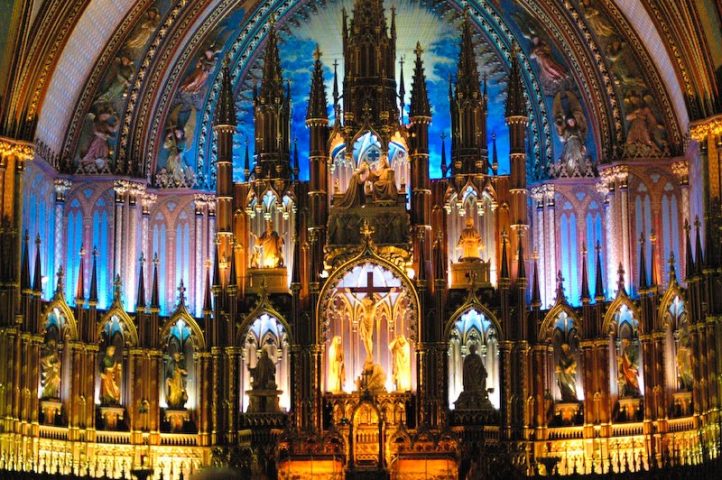Pope Francis (seated top right) leads a mass marking the World day of Migrants and Refugees on January 14, 2018 at St Peter’s basilica (Getty Images)
Bishop Robert Barron believes once people are hooked on beauty, they are more receptive to the truths of the faith
By Francis Phillips, Catholic Herald, Friday, 23 Feb 2018
The newspapers are full of the death of Billy Graham, the American evangelist. His transformative message, preached to millions of people around the globe for over 75 years, was a profound yet simple one: that Jesus Christ is our Saviour and Our Lord and we need to hand over our lives to Him. On hearing him, millions did just that. A humble man, he did indeed, as Kipling puts it in his famous poem, “walk with kings” (including an enduring friendship with Elizabeth II) without losing “the common touch.”
I have been thinking of Billy Graham today, having recently read To Light a Fire on the Earth, by Bishop Robert Barron in conversation with the journalist John L. Allen Jr (Image Books). The book’s subtitle is “Proclaiming the Gospel in a Secular Age”. When Graham started out as an eloquent Christian preacher in the post-war period, the western world was not as secular as today. Barron is very conscious of the fact that he is proclaiming the Gospel to a post-Christian audience.
As he makes clear, his task is also different from the great Catholic TV communicator of the 1950s and 1960s: the late Archbishop Fulton J Sheen. Describing Sheen as “arguably one of the best natural preachers the Church in America ever produced”, Barron is well aware that times have changed and that for educated westerners “Religion is backward, benighted, superstitious and dangerous because of the primitive hatreds and prejudices it unleashes.”
Ordained in Chicago in 1986, followed by a rigorous academic course at the Institut Catholique in Paris, Barron’s mentor was the late Cardinal Francis George of Chicago. It was George who saw his potential, encouraging him to “jump-start evangelisation”. Barron told him “I’ve got to reach young people and the internet is where it’s happening.” Thus began Barron’s popular and widely viewed Word on Fire apostolate: an imaginative and intellectual attempt to reach out first to lapsed Catholics, then to people of “no affiliation” and finally to “hard-core atheists”.
It is a challenging remit. Not unlike Billy Graham or Archbishop Fulton Sheen, Barron focuses on “three paths” to holiness: putting Christ at the centre; knowing we are sinners; and recognising that “the ego must die.” Inspired by Kenneth Clark’s ground-breaking TV series “Civilisation” of the 1960s, he has produced a 10-part film series in the US, titled Catholicism, saying he wanted to produce something on the “beauty and truth of Catholicism”. Barron is convinced that first we have to show the beauty of the faith – through its great cathedrals and its religious art; then its holiness – through the lives of the saints; finally, its truth i.e. its intellectual coherence and reasonableness.
“Once hooked by the beauty of the faith, people will be more receptive to the idea that such beauty is inextricably connected to a way of life”, he believes.
Barron has his critics, notably Michael Voris of Church Militant. This is because Barron is convinced that you won’t attract people from outside the Faith if you start by throwing the “hard sayings” at them. These include the Church’s unchanging teachings on marriage and sexual chastity, the seriousness of mortal sin and the reality of hell. Time will tell if his approach is more effective than that of Fulton Sheen. Meanwhile, looking at the West’s collapse of faith, he has an uphill battle.




